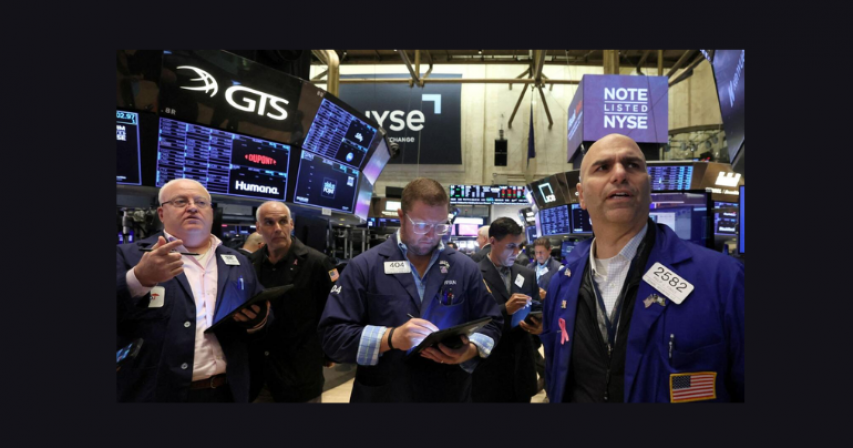Fracturing 'Magnificent Seven' trade puts spotlight on megacap valuations

The surge in the US stock market, fueled by massive technology and growth companies, has prompted investors to reevaluate the pricey valuations of these industry leaders. Known as the "Magnificent Seven," these companies have experienced diverging fortunes, shedding light on the sustainability of their elevated valuations.
According to LSEG Datastream, the "Magnificent Seven" collectively trade at an average price-to-earnings (P/E) ratio of 33 times their expected earnings for the next 12 months, significantly higher than the S&P 500 index's P/E ratio of about 21. Last year, investors were willing to pay a premium for these megacap stocks due to their strong balance sheets and dominant market positions. However, this year, investors have become more discerning, punishing companies like Tesla and Apple while rewarding others like Nvidia.
Mike Mullaney, Director of Global Markets Research at Boston Partners, notes that when stocks reach such lofty valuations, there's little room for error. Concerns about electric vehicle demand have led to a substantial drop in Tesla's stock price, making it the worst performer in the S&P 500 this year. Similarly, Apple has faced challenges in its China business, causing its stock to decline. In contrast, chipmaker Nvidia has seen its stock soar as it establishes dominance in artificial intelligence (AI) applications.
The "Magnificent Seven" accounted for over 60% of the S&P 500's appreciation last year, with gains ranging from 50% for Apple to over 230% for Nvidia. However, as the Federal Reserve's policy meeting approaches and investors anticipate potential rate hikes, there are concerns about the sustainability of these companies' growth trajectories.
Investors are closely watching Nvidia's developer conference to assess its long-term prospects in AI computing. While optimism surrounding AI has buoyed the "Magnificent Seven," investors are grappling with how to incorporate this technology's potential into their valuation models.
Ken Laudan, Portfolio Manager for the Buffalo Large Cap Fund, acknowledges the transformative potential of AI but remains cautious about overvalued stocks. Similarly, Jeffrey Buchbinder, Chief Equity Strategist for LPL Financial, warns that the group's growth trajectory may moderate, leading to a reevaluation of their valuations.
Despite these concerns, many investors remain optimistic about the "Magnificent Seven's" long-term prospects. JPMorgan strategists note that the group is trading more cheaply relative to the market compared to previous years, while Nvidia's P/E ratio has actually decreased over the past year.
Katie Nixon, Chief Investment Officer for Northern Trust Wealth Management, highlights the strong fundamentals of these companies, including robust cash flow and revenue growth. However, analysts caution that if more of the "Magnificent Seven" start to underperform, it could signal a broader market correction.
In conclusion, the spotlight on the valuations of the "Magnificent Seven" underscores the challenges of sustaining lofty stock prices in an increasingly uncertain market environment. While these companies continue to innovate and drive technological advancements, investors must carefully evaluate their growth prospects and market valuations to navigate potential risks and opportunities.
By: Sahiba Suri





Comments